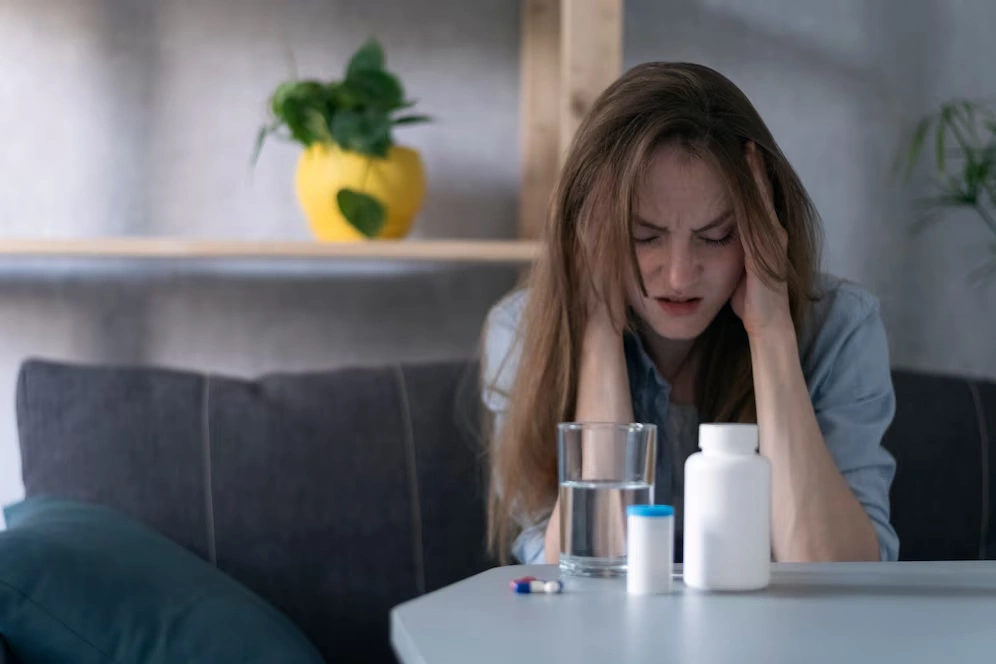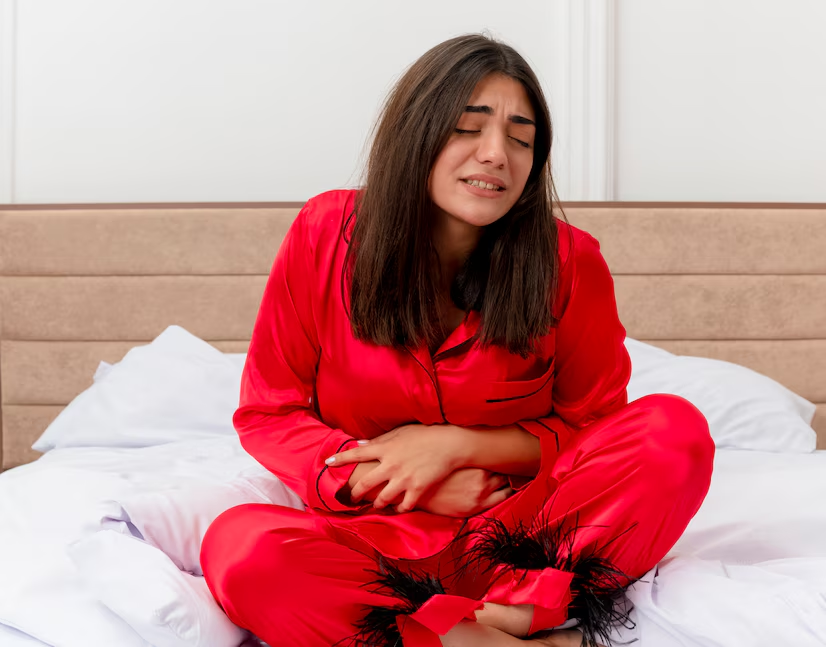Zopiclone: A Guide to Use, Risks, and Alternatives

Many people resort to prescription medications in pursuit of a good night’s sleep. Zopiclone is one of the most common prescription sleep medications. While there are benefits associated with the use of this medication, there is also a great need to consider certain questions regarding its safety, efficacy, and long-term consequences. This blog takes a closer look at some critical aspects of zopiclone for a deeper understanding. It discusses concerns over its nightly usage, risks, effects, and possible alternatives.
Table of Contents
ToggleWhat is Zopiclone?
Zopiclone is a non-benzodiazepine hypnotic agent used in treating transient insomnia. It works its way into the brain neurotransmitters, facilitating sleep. Unlike benzodiazepines, which are actually a class of broad sedatives, theoretically, zopiclone works its magic on receptors selectively linked with the induction of sleep-a more specific treatment for sleep disorders.
Is It Okay to Take Zopiclone Every Night?
Whether it is okay to take zopiclone every night is an open-ended question, given it all really depends upon many factors in between: health, dosage, and the duration in which it has been consumed. Generally speaking, prescriptions for zopiclone are granted for a short period of time, a few weeks. Long-term use is usually advised against because of the risk of dependence and tolerance.
- Dependence and Tolerance: Taken regularly, people develop a tolerance to zopiclone; it becomes less effective over time for the same dose. This may, in turn increase the dosage and further enhance the possibility of dependence. Dependence is characterized by the compulsion to continue the drug despite adverse effects.
- Withdrawal Symptoms: Withdrawal symptoms that may be encountered after discontinuation, particularly after long-term use, include rebound insomnia, anxiety, and irritability. It is, therefore, of essence to pay great attention to the prescribed duration and dosage. If further use beyond that is necessary, it must be in consultation with a health expert.
- Cognitive and Motor Impairment: The regular usage of zopiclone can be highly debilitating to cognitive and motor functions. Nightly administration of the drug may eventually have an effect on daytime functioning, leading to drowsiness, impaired memory, and difficulties with concentration.
In short, zopiclone is effective in managing insomnia in the short term but is not generally recommended to be taken every night for any period of time longer than that. It is always important to follow given instructions and consult with a healthcare professional if it becomes apparent that you need to use the medication more often.
Is Zopiclone a High-Risk Drug?
This is because of its potential for dependence, abuse, and side effects; hence it is considered a high-risk drug. It is represented here in an overview of risks associated with its use.
- Dependence and Abuse: As mentioned, it is possible to be dependent on zopiclone. This mostly would happen if the drug was in situations other than indicated and for longer periods than prescribed. In cases of dependence, abuse could also occur where such patients take more significant dosages or increased frequency than was prescribed.
- Side Effects: Other than dependence, many other side effects characterize zopiclone, such as :
- Drowsiness: A few experience chronic drowsiness the next day, which interferes with daily functioning and hazards safety in the form of accidents.
- Problems with Memory: Possible short-term memory problems in people using the drug
- Problems with Coordination: A lack of motor coordination is a huge concern impacting one’s driving
- Behavioral Changes: Some people mentioned different behavioral changes or mood changes such as agitation and aggression.
- Interaction with Other Substances: Zopiclone may interact with other medications, especially with other central nervous system depressants such as alcohol and benzodiazepines. These interactions serve to enhance the sleep-inducing effects of zopiclone by engendering dangerous levels of somnolence and impairment of functioning.
Considering such risks, it is essential that users be fastidious about their health provider’s instructions and discuss any concerns or side effects during the time they are taking zopiclone.
Why Does Zopiclone Feel So Good?
The induction of a feeling of well-being and relaxation may account for the sensation of pleasure in some abusers. Pharmacological actions are related to the drug’s mechanism of action on neurochemical neurotransmitters in the brain, mainly those involved in the modulation of sleep and relaxation.
- Sedative effect: The drug, zopiclone, induces sleep by increasing the activity of gamma-aminobutyric acid. GABA itself acts as an inhibitory neurotransmitter in the brain. This results in sedation and may induce relaxation; it is, therefore, associated with decreased anxiety and contributes to why the drug feels “good”.
- Improved Sleep Quality: Improved sleep quality and duration are greatly achieved with zopiclone in cases of insomnia. This may add to the overall improvement in mood and daytime functioning and may encourage favorable feelings toward the medication.
- Short-Term Relief: The immediate relief provided by this action is rather pleasing to the individual suffering from insomnia, especially when one has been suffering from sleep disturbances for a period of time. Initial positive results for some users can outweigh long-term risks.
Again, one should remember that though zopiclone might make one feel good and relieved in the short term, it is not a treatment for the cause of sleep disorders. Long-term intake of this medication results in several side effects and dependencies associated with it.
What is a Good Alternative to Zopiclone?
If you are concerned about the risks associated with zopiclone-or are simply looking for alternative treatments for insomnia-several options exist:
- Behavioral Therapy-Cognitive Behavioral Therapy for Insomnia: This is a highly researched and effective non-pharmacological intervention. It involves the identification and modification of thoughts and behaviors perpetuating sleep disturbance. CBT-I can help create healthier sleep patterns and habits that do not rely on medication.
- Such modifications in lifestyle are found to be highly effective: practicing good sleep hygiene by going to bed and getting up at the same time every day, making the bedroom a haven for sleep, avoiding caffeine and electronics before bedtime, or engaging in techniques for relaxation, including meditation or passive yoga.
- Natural supplements: Many people get relief by resorting to natural supplements, like melatonin, valerian root, or chamomile. Melatonin itself, being a hormone of the sleep-wake cycle, will be of help with problems of falling asleep. On the other hand, it would also be very important to discuss any kind of supplements with a health professional in order for them to confirm that they are safe and proper for your case.
- Other Medications: It is not necessary to resort to such medication. Certain antidepressants, like trazodone, are prescribed off-label for insomnia. Other sleep medications include eszopiclone (Lunesta) and ramelteon (Rozerem), but again all considerations and risks apply.
Zopiclone Side Effects the Next Day
The effects of zopiclone are not limited to the night, as they may carry over onto the next day. Common residual side effects include:
- Residual Drowsiness: One major problem is a feeling of grogginess or being overtly sleepy the following morning. This may further hinder your ability to perform daytime activities normally and may interfere with work, driving, and general daily routines.
- Cognitive Impairment: There is disturbance of memory, difficult concentration, and problem-solving. This can be quite worrisome for the persons who have to stay awake and alert during the day.
- Coordination Problems: Impaired motor coordination may further increase the risk of accidents and falls, which one must consider when operating machinery or driving.
- Hangover Effect: Some individuals experience this as a “hangover” effect, where they remain groggy, disoriented, or not refreshed after sleep. This is frustrating and defeats the purpose of sleeping with an assistant.
In the end, though there are a few positive effects with zopiclone in the treatment of insomnia, potential risks and side effects arise in relation to its use in treatment. If applied, it should be closely monitored and alternatives sought as part of an effort to control sleep disorders in a healthier and more sustainable manner. Always consult with a healthcare provider to discuss your symptoms and treatment options, ensuring a balanced approach toward restful sleep.

Noah Harrison, based in Australia, is an experienced content writer with a strong focus on the medical industry. Holding a master’s degree in English literature, Noah Harrison combines exceptional writing skills with in-depth knowledge of medical science to create informative and engaging content. Read more about Noah Harrison.





